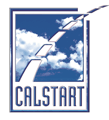CALSTART Applauds Biden Administration’s National Zero-Emission Freight Corridor Strategy
The plan prioritizes a phased-in approach and has appropriately taken into account the speed at which electric charging infrastructure can be built at scale.
Pasadena, Calif. – CALSTART, a leader in advancing clean transportation solutions, congratulates the Biden Administration on the unveiling of the National Zero-Emission Freight Corridor Strategy (Strategy). The Strategy prioritizes a phased-in approach and has appropriately taken into account the speed at which electric charging infrastructure can be built at scale, marking a significant step forward in the transition to zero-emission medium- and heavy-duty vehicles (ZE-MHDVs).
By prioritizing launch areas based on industry concentration, funding levels, policy support, energy cost and grid readiness, the Strategy directs implementing agencies to consider realistic technology adoption and market dynamics where increasing use of commercial zero-emission vehicles (ZEVs) could be spurred by the economic and targeted buildout of necessary infrastructure. The Strategy is based on a focused buildout around freight and trucking return-to-base depot infrastructure, regional hub-to-hub corridors and national network nodes. This phased-in approach enables faster deployment, cost-effective implementation, strategic alignment and coordinated efforts between the public and private sectors.
“The National Zero-Emission Freight Corridor Strategy sets a clear pathway for accelerating the adoption of zero-emission medium- and heavy-duty vehicles, which is in line with stringent Phase 3 vehicle standards,” said Trisha Dello Iacono, Head of Policy at CALSTART. “We commend and support the federal government for embracing a phased-in approach, which will not only expedite deployment but also optimize infrastructure investment, foster collaboration and drive innovation and job creation in the transportation and freight sectors.”
The Strategy deeply aligns with key recommendations outlined in CALSTART’s roadmap Phasing in U.S. Charging Infrastructure. In its roadmap, CALSTART developed a model for how the U.S. can implement a national buildout of infrastructure at the scale and speed necessary to support rapid adoption of ZE-MHDVs by initially targeting priority areas through waves of increasing commercial ZEV usage. By prioritizing a phased-in strategy, buildout begins in hubs in key clusters, then along corridors in critical regions and finally in network nodes to create a national framework. These phases grow from major hotspots of commercial vehicle usage where ZE-MHDV use cases are generally well-established, and expand into a national network of widely adopted freight travel supported by a connected system of electric charging infrastructure. The Strategy aligns with CALSTART’s analysis to create a reliable and accessible freight charging infrastructure network.
CALSTART projected the infrastructure needed to support ZE-MHDV adoption rates aligning with targets set by the Global Memorandum of Understanding on Zero-Emission Medium- and Heavy-Duty Vehicles (Global MOU). The analysis demonstrates that a phased-in approach to medium- and heavy-duty charging infrastructure, focusing on favorable launch areas, can effectively manage distribution grid upgrades and maximize utilization.
CALSTART looks forward to continuing its collaboration with the federal government, industry and other stakeholders to advance the integration of grid modernization and ZE-MHDV adoption, ultimately contributing to a more efficient, sustainable and resilient transportation system.
About CALSTART
A nonprofit organization with offices in New York, Michigan, Colorado, California and Europe, and with partners world-wide, CALSTART works with more than 300 member companies and agency innovators to build a prosperous, efficient and clean high-tech transportation industry. We overcome barriers to modernization and the adoption of clean vehicles. CALSTART is changing transportation for good.
Media contact: Jennifer Smith, [email protected]
